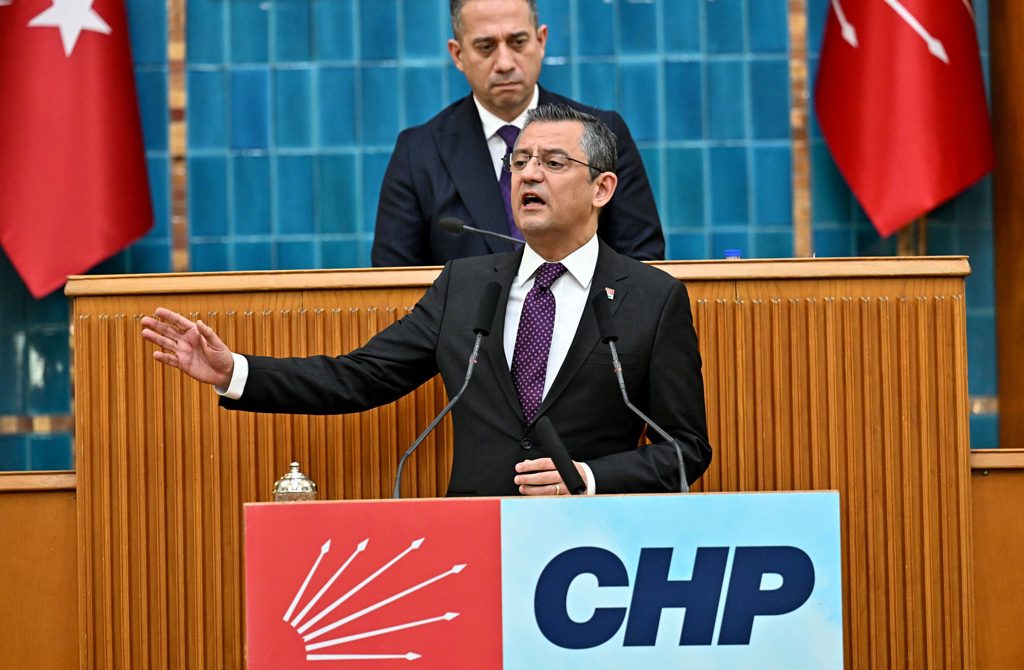Twelve Turkish soldiers lost their lives earlier this week in an attack by the terrorist organization PKK in northern Iraq. I offer my condolences to their families and the nation.
The main opposition Republican People’s Party (CHP) along with the Green Left Party (YSP), informally known as the Peoples’ Equality and Democracy Party (DEM Party), refused to sign a joint parliamentary statement condemning terrorism and now faces a huge backlash. The CHP Chairperson Özgür Özel was compelled to issue a separate statement upon receiving criticism from the governing Justice and Development Party (AK Party), the Nationalist Movement Party (MHP) and some members of his own movement. He defended his decision not to sign the joint statement, claiming that he refused to “jump on the government’s bandwagon” and adding that “signing statements does not bring back the martyrs.” Another CHP member argued that no political party should be forced to turn its position on that sensitive topic into common ground.
Anti-terror campaign
To be clear, those arguments undermine, as opposed to strengthen, the CHP’s discourse. After all, what matters most in the fight against terrorism is for the political establishment to “turn its will into the common ground.” It is to make joint statements instead of speaking for oneself. It is perfectly possible to criticize the government’s counterterrorism campaign upon signing a joint statement. Disagreement over the immediate response to a terror attack would only undermine the fight against terrorism.
Indeed, the CHP’s refusal to sign the joint parliamentary statement played into the YSP’s hands. At the same time, it reminded everyone that the CHP was compelled to join forces with the YSP for the March 2024 municipal elections. That gave YSP’s co-Chair Tuncer Bakırhan the courage to reflect on the PKK attack by saying that “neither the people of Tekirdağ nor the people of Trabzon will find peace as long as the Kurdish question persists.”
Having signed joint statements reaffirming Türkiye’s commitment to the fight against terrorism in the past, the CHP revised its position despite ending up in the same position as the YSP. It is possible to argue that the CHP leadership followed in the footsteps of their former Chairperson Kemal Kılıçdaroğlu who voted against the deployment of Turkish troops abroad.
It goes without saying that the CHP’s latest decision was in line with Özel’s pledge to collaborate with the YSP in a “transparent” manner. The fact that the main opposition party attempted to create the impression that it was more committed to the counterterrorism campaign than the government by criticizing the current policy, too, attested to that continuity. The only difference was Özel’s unique style of rhetoric and questioning.
Controversial stance
The CHP developed a two-pronged discourse regarding PKK terrorism. Despite refusing to sign the joint parliamentary statement, it attempts to make more aggressive arguments. One cannot help but ask the following: Will the CHP, which broke away from the Good Party (IP) and the Felicity Party (SP) at Parliament, shape its new leftist politics through such choices? Is it possible for this choice, which will certainly infuriate the CHP base and CHP-leaning voters, to be covered up with a war of words?
The main opposition party cannot develop a new policy nor a new discourse by scrutinizing the counterterrorism campaign and reopening the debate over “religious fraternities and secularism.” This cannot possibly be the meaning of embracing the right with leftist policies.
Under the leadership of Özel and Istanbul Mayor Ekrem Imamoğlu, the CHP faces the risk of lagging behind Kılıçdaroğlu’s tenure. The two politicians seem to have agreed on a certain division of labor, whereby Imamoğlu focuses on microlevel operations and the selection of mayoral candidates to form a grassroots alliance. Meanwhile, Özel concentrates on questions of ideology, identity and rhetorical battles. That is why he positions the party next to the YSP.
Yet, this new division of labor might not only fail to end the CHP’s fragmentation and internal strife but also cause additional problems.
In this article
- Opinion
- 2024 Turkish Local Elections
- Ankara Metropolitan Municipality Mayor
- CHP-DEM Alliance
- Counterterrorism
- DEM-PKK Relations
- DEM-Terror Relations
- Ekrem Imamoğlu
- Istanbul Metropolitan Municipality Mayor
- Kemal Kılıçdaroğlu
- Kurdistan Workers' Party Terrorist Organization (PKK)
- Mansur Yavaş
- Middle East
- Özgür Özel
- PKK - YPG - SDF - PYD - YPJ - SDG - HBDH - HPG - KCK - PJAK - TAK - YBŞ
- Tuncer Bakırhan
- Türkiye's Felicity Party (SP)
- Türkiye's Good Party (IP)
- Türkiye's Green Left Party (YSP)
- Türkiye's Justice and Development Party | AK Party (AK Parti)
- Türkiye's Republican People's Party (CHP)
- Türkiye's Republican People’s Party (CHP) Chairperson
- Türkiye’s Nationalist Movement Party (MHP)



